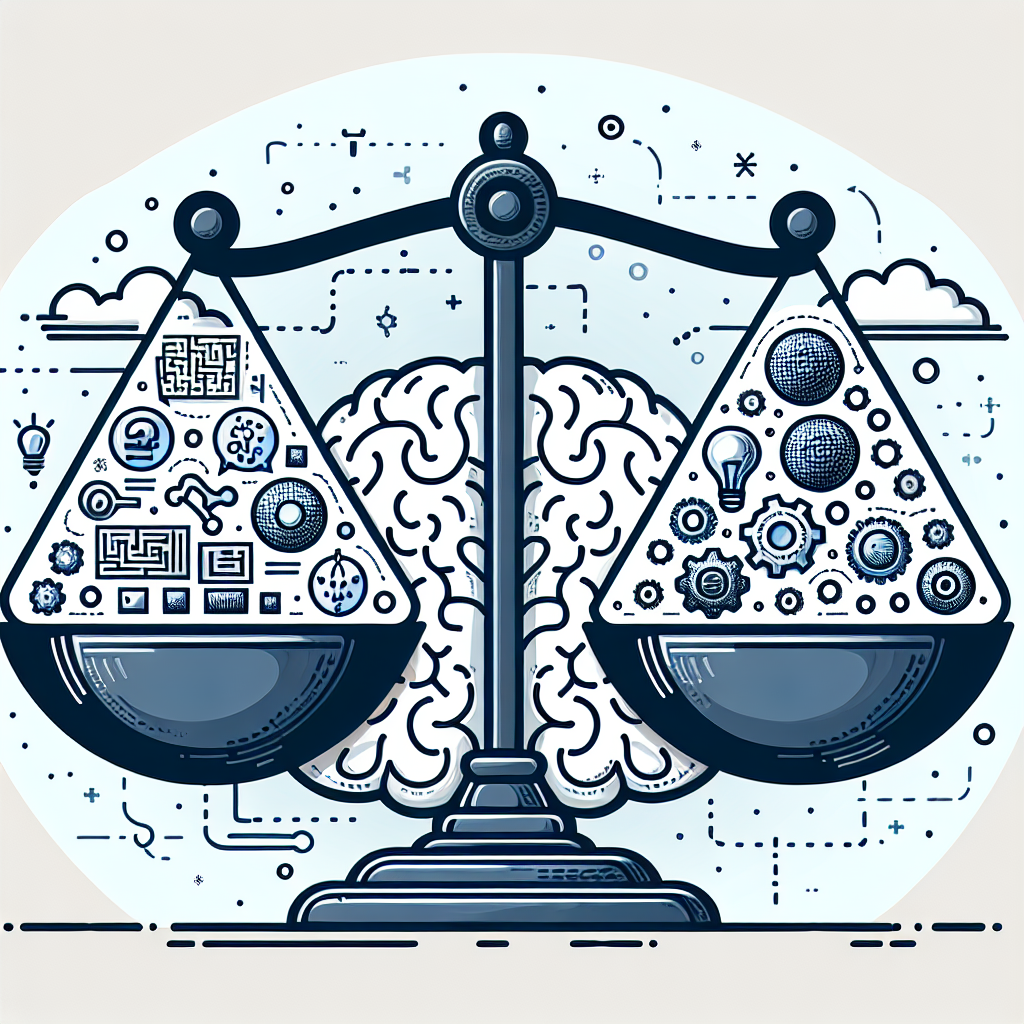Artificial General Intelligence (AGI) refers to a type of artificial intelligence that possesses the ability to understand, learn, and apply knowledge in a manner similar to human beings. While current AI technologies are proficient in performing specific tasks such as image recognition, language translation, and game playing, they lack the capacity for generalization and common-sense reasoning that humans possess. Developing AGI presents numerous challenges, but also offers immense opportunities for advancing technology and society as a whole.
Challenges of Developing AGI:
1. Complexity: Creating AGI requires the integration of multiple cognitive abilities such as perception, reasoning, planning, and problem-solving. Designing algorithms that can mimic the complexity of the human brain is a daunting task that requires extensive research and experimentation.
2. Data availability: AGI systems require vast amounts of data to learn and improve their performance. Accessing diverse and high-quality datasets is a significant challenge, especially in domains where data privacy and security are major concerns.
3. Robustness: AGI systems must be robust enough to handle uncertain and unpredictable environments. Ensuring that AI algorithms can adapt to changing conditions and unexpected inputs is crucial for their successful deployment in real-world applications.
4. Ethics and bias: Developing AGI raises ethical concerns related to privacy, fairness, and accountability. Ensuring that AI systems are unbiased and adhere to ethical principles is essential for building trust among users and stakeholders.
5. Scalability: AGI systems need to scale efficiently to handle increasing amounts of data and computation. Designing algorithms that can run on parallel processing units and distributed computing platforms is a key challenge for researchers in the field.
Opportunities of Developing AGI:
1. Innovation: AGI has the potential to revolutionize various industries by automating complex tasks, accelerating scientific discovery, and enhancing decision-making processes. AI technologies can drive innovation and create new opportunities for businesses and individuals.
2. Personalized experiences: AGI systems can personalize user experiences by analyzing individual preferences and behavior. From personalized recommendations to tailored healthcare treatments, AI has the power to provide customized solutions that meet the specific needs of users.
3. Automation: AGI can automate routine and repetitive tasks, freeing up human workers to focus on more creative and strategic activities. By streamlining processes and increasing efficiency, AI technologies can boost productivity and drive economic growth.
4. Problem-solving: AGI systems can tackle complex problems that require advanced reasoning and decision-making skills. Whether it’s optimizing supply chains, predicting financial trends, or diagnosing diseases, AI has the potential to solve some of the most challenging problems facing society.
5. Collaboration: AGI can collaborate with humans to achieve common goals and enhance human capabilities. By combining the strengths of AI and human intelligence, we can unlock new opportunities for innovation and progress.
FAQs:
Q: What is the difference between AGI and narrow AI?
A: Narrow AI refers to AI systems that are designed to perform specific tasks or functions, such as speech recognition or image classification. AGI, on the other hand, is a more general form of AI that can learn and adapt to a wide range of tasks and domains.
Q: How close are we to achieving AGI?
A: While significant progress has been made in AI research, achieving AGI remains a long-term goal that requires continued innovation and investment. Researchers are making strides in areas such as deep learning, reinforcement learning, and cognitive science, but there is still much work to be done before AGI becomes a reality.
Q: What are the potential risks of AGI?
A: AGI poses several risks, including job displacement, privacy concerns, and ethical dilemmas. Ensuring that AI systems are developed and deployed responsibly is essential for mitigating these risks and maximizing the benefits of AGI.
Q: How can individuals prepare for the rise of AGI?
A: To prepare for the emergence of AGI, individuals can develop skills in areas such as data science, machine learning, and problem-solving. Staying informed about AI trends and advancements can also help individuals adapt to the changing landscape of technology.
In conclusion, developing AGI presents both challenges and opportunities for researchers, businesses, and society as a whole. While the road to achieving AGI may be long and complex, the potential benefits of creating intelligent machines that can think and learn like humans are immense. By addressing the challenges and seizing the opportunities of AGI, we can harness the power of AI to drive innovation, solve complex problems, and enhance the human experience.

